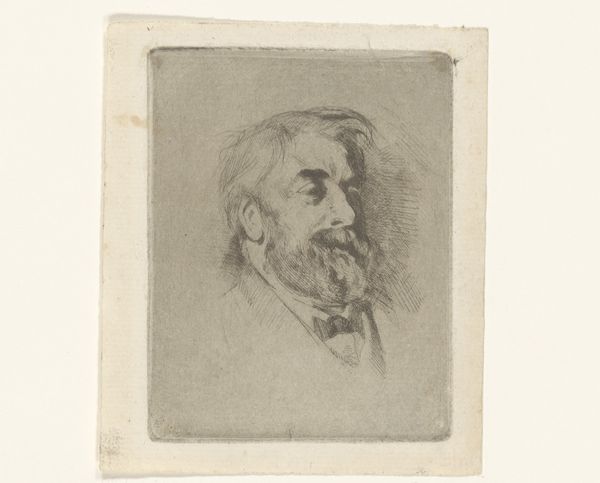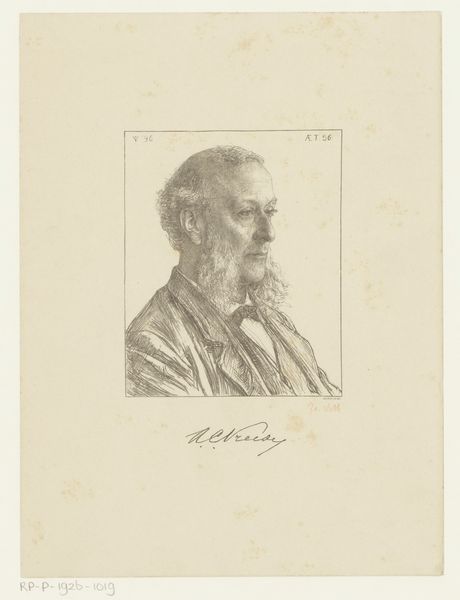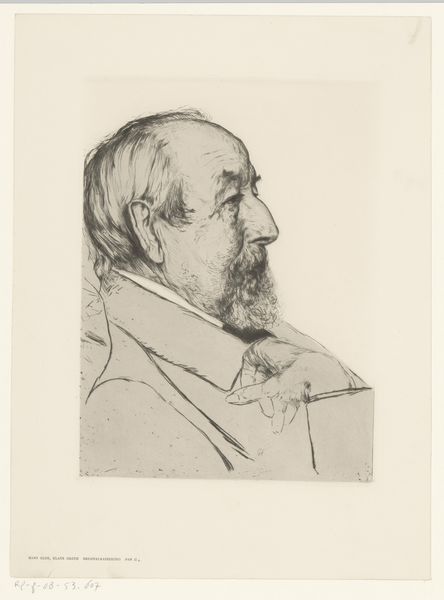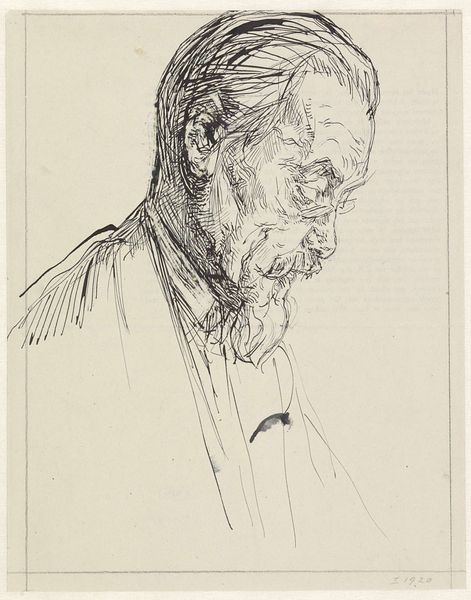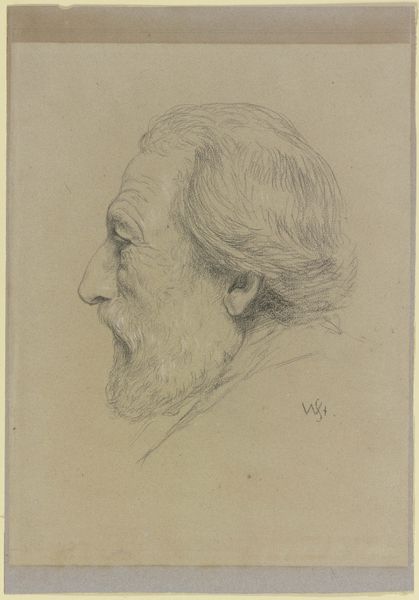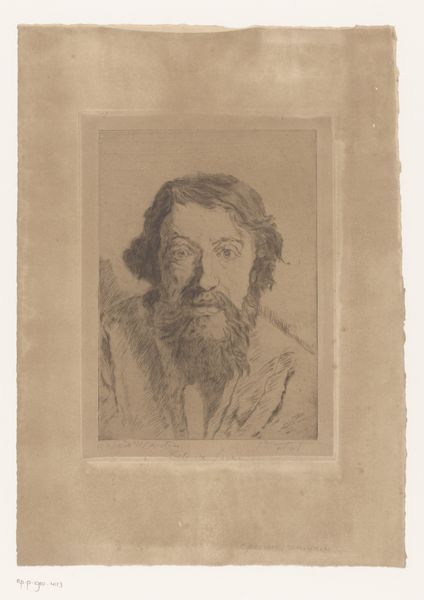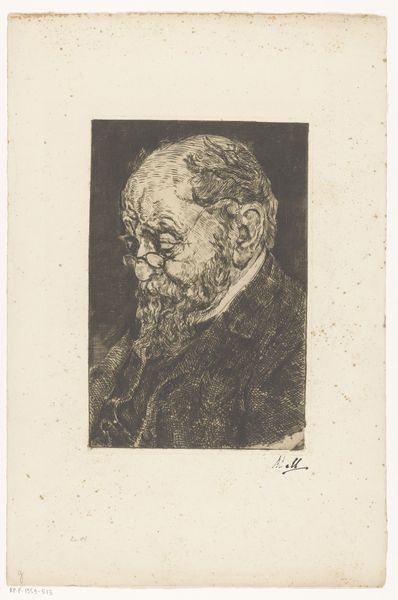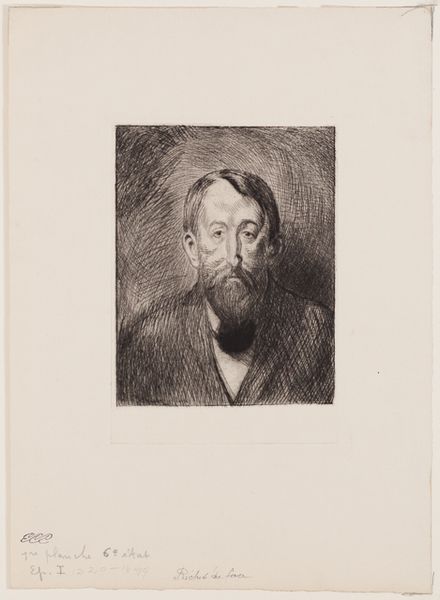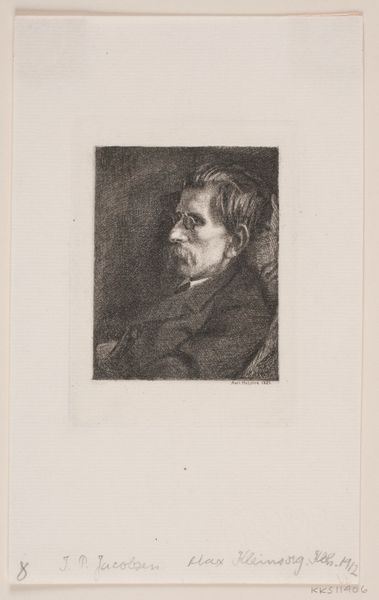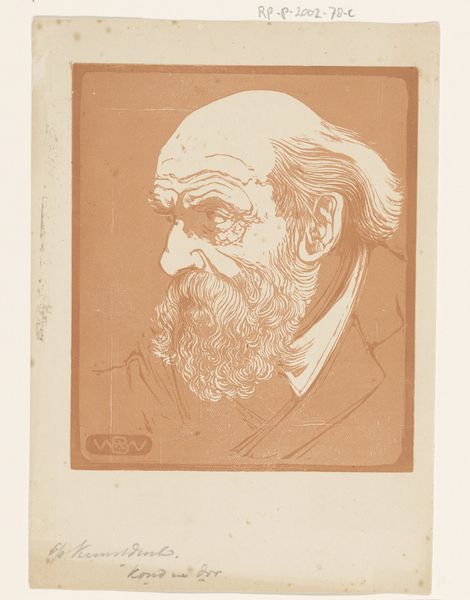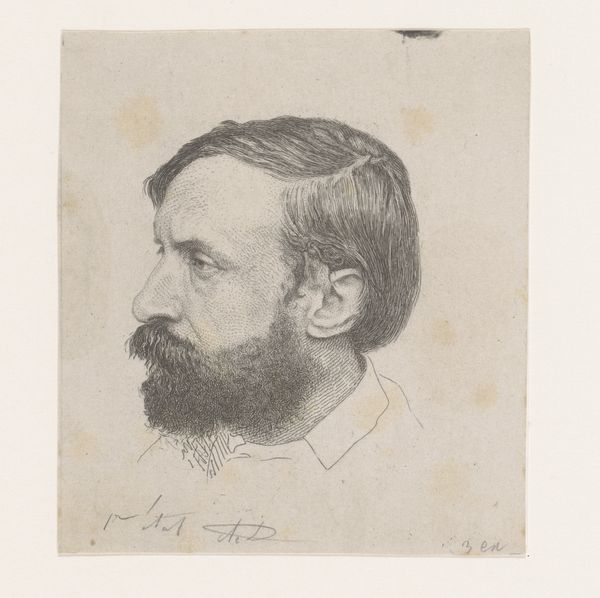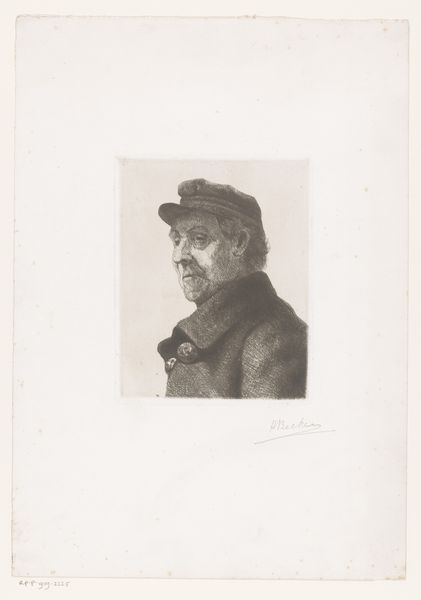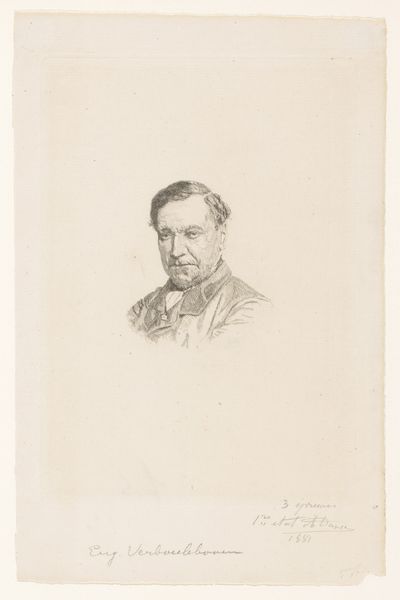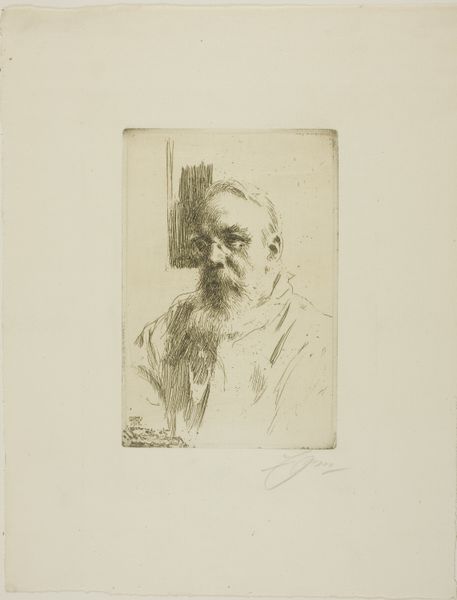
drawing, paper, pencil
#
portrait
#
drawing
#
pencil sketch
#
paper
#
pencil
#
realism
Dimensions: height 247 mm, width 199 mm
Copyright: Rijks Museum: Open Domain
Editor: This is Emil Orlik's "Portrait of Joseph Pennell," from 1924. It's a pencil drawing on paper, quite delicate and intimate. The subject seems thoughtful, even a bit world-weary. How do you interpret this work, particularly given the time it was created? Curator: The timing is critical. This portrait emerges from a period marked by significant social and political upheaval following World War I. Look closely – doesn't the subject's gaze seem to question the established order? The choice of pencil, often associated with preliminary sketches, also speaks volumes. Could this fragility reflect the anxieties and uncertainties of the interwar period? Editor: That's interesting. I hadn't considered the pencil as a deliberate commentary. Curator: Consider also Pennell himself – an American artist known for his prints of industrial landscapes. How might Orlik be positioning Pennell in relation to the rapidly changing world, perhaps commenting on the shifting roles of artists and intellectuals within these modernizing societies? Editor: So, you're saying it's not just a portrait, but a statement about art's role in a time of change? Curator: Precisely. Orlik may be prompting us to contemplate the responsibilities of artists in reflecting and critiquing power structures, questioning how individual identity is constructed within those systems. Editor: I see it now. It's much more than a simple likeness; it's a commentary on the anxieties of a changing world and the artist's place within it. Thank you for sharing your insight! Curator: Absolutely! Seeing art as a dialogue between past and present allows us to connect these historical conversations to contemporary struggles for social justice and equity.
Comments
No comments
Be the first to comment and join the conversation on the ultimate creative platform.
